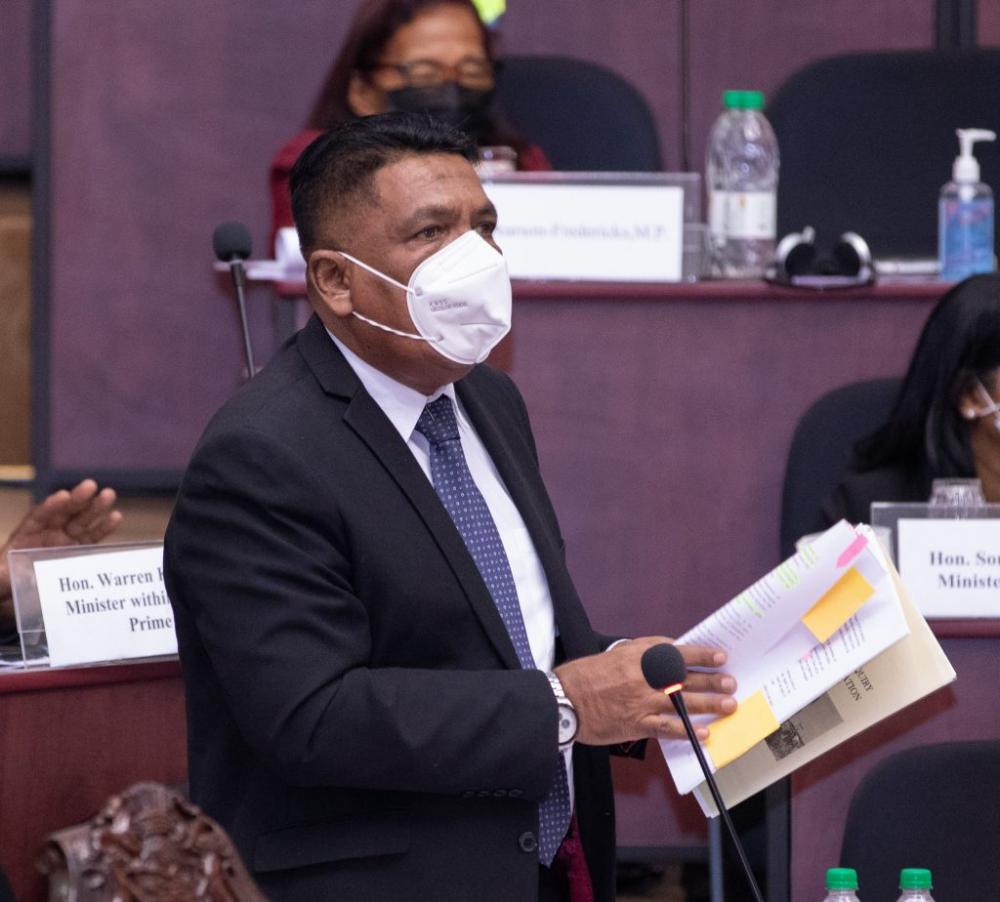Guyana's Minister of Agriculture underscores the importance of digital inclusion as a priority for agriculture in Latin America and the Caribbean

San José, 9 March 2021 (IICA). According to Guyana's Minister of Agriculture, Zulfikar Mustapha, rural digital inclusion has become more crucial than ever before to tackle the challenges facing the agricultural sector as a result of the Covid-19 pandemic and to transform productive activity. Digital skills must therefore be developed throughout the rural population, and the sector must be encouraged to adopt and utilize the available technologies and innovations.
Minister Mustapha made this statement during the presentation of the study entitled “Digital literacy in rural areas: an indispensable condition to bridge the divide in Latin America and the Caribbean”, developed by the Inter-American Institute for Cooperation on Agriculture (IICA) with the support of the Inter-American Development Bank (IDB) and Microsoft.
“I commend IICA for this initiative, which underscores what must be done in order to develop the digital skills of rural populations, so that technologies and innovations can be adopted and used effectively. We hope that the findings and recommendations arising from the report will help guide decision-making and policy generation in Latin America and the Caribbean in the medium and short terms” Mustapha said at the event.
The document seeks to contribute to the adoption of policies and bring to the center of public discussion a relegated issue such as the adoption of digital skills in rural Latin America and the Caribbean. This is as relevant as the role of connectivity, which when absent, undermines the great productive, social and economic potential existing in rural areas.
“This is an irrefutable need, and we must work together as a region to reduce the digital divide and to ensure that no country is left behind. The government of Guyana is committed to providing the social and institutional conditions to improve connectivity, foster innovation, and provide equitable access to technologies. Information and communication technologies can be complex and require appropriate training for their operation and maintenance” added Mustapha.
The head of Agriculture of this South American and Caribbean nation also emphasized the importance of digitalization in agriculture to have increasingly smart farms, move towards more productive and sustainable agrifood systems using precision agriculture, and strengthen e-commerce and digital markets in order to easily connect producers with buyers, and of course, guarantee food security.
The Guyanese minister also underscored the key role of IICA as a promoter of rural digitalization in its member countries over the years, and in bringing to the forefront the issue of the digital divide. He also mentioned “the role of agriculture in strengthening food security”, which undoubtedly requires “the transformation of agricultural systems through technological innovation”.
In the same spirit, he highlighted various digital agricultural extension initiatives that the organization specializing in agriculture and rurality are making available to Caribbean countries such as AgriExtApp, a pilot application designed for farmers in Antigua and Barbuda, The Bahamas, Guyana and Saint Vincent and the Grenadines to ensure their access to remote agricultural extension services.
The app offers information on crop management, best practices, sanitary and phytosanitary issues, online assistance and an information exchange network. Its purpose is to provide assistance to agricultural producers, key players within the Ministries of Agriculture and extension services.
Mr. Mustapha also mentioned the application used to measure the surplus agricultural production that was made available to the Ministries of Agriculture to promote intra-regional trade and guarantee food security during the pandemic.
“I would like to thank IICA for the role they have played in agricultural extension and for the applications developed for rural producers in our country. We have several farmers who live in very distant rural communities, and these apps will help extension officers to prepare real-time reports that they can provide to us in the capital city. It is very important to come together, communicate and develop trade in this part of the hemisphere and ensure that we have food security" he said.
The minister also stated that in Guyana, they are making efforts to set up a biotechnology lab to improve crop biodiversity through innovation and technology, thus strengthening the rice production and monitoring systems, among other actions.
He concluded by saying that it is imperative to continue to look for low-cost technological solutions for farmers, offer subsidies and reduce taxes to ensure access to innovation and technology for all producers, and identify agrotechnology specialists in the Caribbean that could provide digital skills training, always with a gender-based approach in view of the role played by women in family farming.
“The different ministries of the region must engage in discussions on digital issues in order to identify agrotechnology areas that can provide training for farmers. We also need to consider subsidies and tax reductions for farmers in order to guarantee their access to these tools. Our government will make efforts to this end by ensuring not only low-cost technologies for primary processing in rural areas, but also by providing training to farmers while acknowledging the gender divide" explained Mr. Mustapha.
More information:
Institutional Communication Division of IICA.
comunicacion.institucional@iica.int